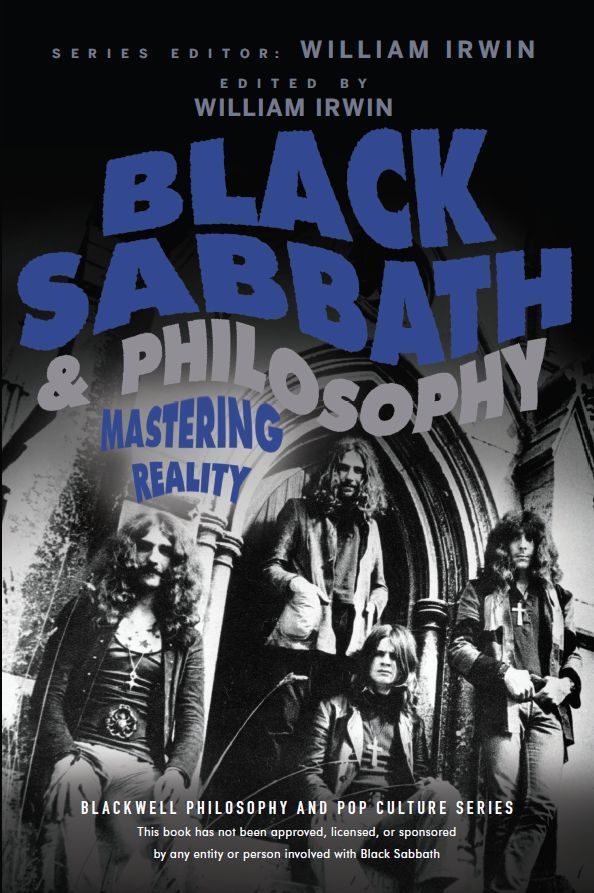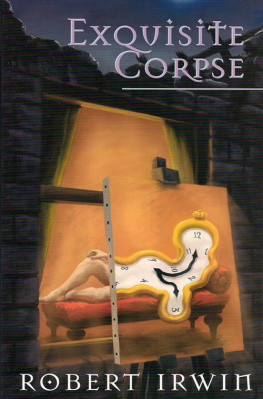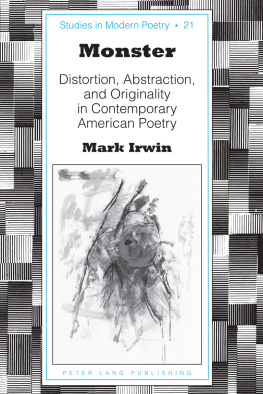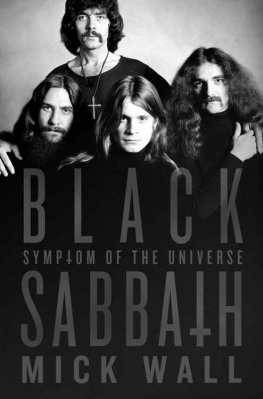
The Blackwell Philosophy and Pop Culture Series
Series Editor: William Irwin
24 and Philosophy
Edited by Jennifer Hart Weed,
Richard Davis, and Ronald Weed
30 Rock and Philosophy
Edited by J. Jeremy Wisnewski
Alice in Wonderland and Philosophy
Edited by Richard Brian Davis
Arrested Development and Philosophy
Edited by Kristopher Phillips and
J. Jeremy Wisnewski
The Avengers and Philosophy
Edited by Mark D. White
Batman and Philosophy
Edited by Mark D. White and
Robert Arp
Battlestar Galactica and Philosophy
Edited by Jason T. Eberl
The Big Bang Theory and Philosophy
Edited by Dean Kowalski
The Big Lebowski and Philosophy
Edited by Peter S. Fosl
The Daily Show and Philosophy
Edited by Jason Holt
Family Guy and Philosophy
Edited by J. Jeremy Wisnewski
Final Fantasy and Philosophy
Edited by Jason P. Blahuta and
Michel S. Beaulieu
Game of Thrones and Philosophy
Edited by Henry Jacoby
The Girl with the Dragon Tattoo
and Philosophy
Edited by Eric Bronson
Green Lantern and Philosophy
Edited by Jane Dryden and
Mark D. White
Heroes and Philosophy
Edited by David Kyle Johnson
House and Philosophy
Edited by Henry Jacoby
The Hunger Games and Philosophy
Edited by George Dunn and
Nicolas Michaud
Inception and Philosophy
Edited by David Johnson
Iron Man and Philosophy
Edited by Mark D. White
Mad Men and Philosophy
Edited by James South and
Rod Carveth
Metallica and Philosophy
Edited by William Irwin
The Office and Philosophy
Edited by J. Jeremy Wisnewski
South Park and Philosophy
Edited by Robert Arp
Spider-Man and Philosophy
Edited by Jonathan Sanford
Terminator and Philosophy
Edited by Richard Brown and
Kevin Decker
True Blood and Philosophy
Edited by George Dunn and
Rebecca Housel
Twilight and Philosophy
Edited by Rebecca Housel and
J. Jeremy Wisnewski
The Ultimate Harry Potter and Philosophy
Edited by Gregory Bassham
The Ultimate Lost and Philosophy
Edited by Sharon Kaye
Watchmen and Philosophy
Edited by Mark D. White
X-Men and Philosophy
Edited by Rebecca Housel and
J. Jeremy Wisnewski

This edition first published 2013
2013 John Wiley & Sons, Inc.
Wiley-Blackwell is an imprint of John Wiley & Sons, formed by the merger of Wileys global Scientific, Technical and Medical business with Blackwell Publishing.
Registered Office
John Wiley & Sons, Ltd, The Atrium, Southern Gate, Chichester, West Sussex, PO19 8SQ, UK
Editorial Offices
350 Main Street, Malden, MA 02148-5020, USA
9600 Garsington Road, Oxford, OX4 2DQ, UK
The Atrium, Southern Gate, Chichester, West Sussex, PO19 8SQ, UK
For details of our global editorial offices, for customer services, and for information about how to apply for permission to reuse the copyright material in this book please see our website at www.wiley.com/wiley-blackwell .
The right of William Irwin to be identified as the author of the editorial material in this work has been asserted in accordance with the UK Copyright, Designs and Patents Act 1988.
All rights reserved. No part of this publication may be reproduced, stored in a retrieval system, or transmitted, in any form or by any means, electronic, mechanical, photocopying, recording or otherwise, except as permitted by the UK Copyright, Designs and Patents Act 1988, without the prior permission of the publisher.
Wiley also publishes its books in a variety of electronic formats. Some content that appears in print may not be available in electronic books.
Designations used by companies to distinguish their products are often claimed as trademarks. All brand names and product names used in this book are trade names, service marks, trademarks or registered trademarks of their respective owners. The publisher is not associated with any product or vendor mentioned in this book. This publication is designed to provide accurate and authoritative information in regard to the subject matter covered. It is sold on the understanding that the publisher is not engaged in rendering professional services. If professional advice or other expert assistance is required, the services of a competent professional should be sought.
Library of Congress Cataloging-in-Publication Data
Black Sabbath and philosophy : mastering reality / edited by William Irwin.
p. cm. (The Blackwell philosophy and pop culture series)
Includes bibliographical references and index.
ISBN 978-1-118-39759-6 (pbk.) ISBN 978-1-118-39760-2 (emobi) ISBN 978-1-118-39761-9 (epub) 1. Black Sabbath (Musical group) 2. Music and philosophy. 3. Rock musicHistory and criticism. I. Irwin, William, 1970
ML421.B57B54 2012
782.421660922dc23
2012026658
A catalogue record for this book is available from the British Library.
Cover photograph: Michael Ochs Archives/Getty Images
Cover design: Wendy Mount
Dedicated to Connie Santisteban, the muse of pop culture who has guided this book series
Introduction
What Is This That Stands Before Me?
The tape would stop in the middle of N.I.B. whenever Ozzy sang My name is Lucifer, please take my hand. That was enough to convince my 13-year-old self that something sinister was at work. The play button would pop up, and I would freak out. Together the songs produced a witches brew of guilt, fear, fascination, and intoxication. Listening to Sabbath I felt that I was doing something forbidden yet necessary, like losing my virginity. Maybe I should have heeded the tapes ominous warning, but here I am 30 years later. Adolescent obsession has become adult appreciation.
We dont just listen to Black Sabbath; we are haunted by them. The music and lyrics stay with us long after the songs stop playing. There is genius in the simplicity of the unforgettable riffs, and there is hidden depth in the lyrics, which confront existential despair, social instability, political corruption, the horrors of war, and the nature of evil. The name of the band is Black Sabbath, but dont be misled. They are all about shades of gray. As with most great art, Sabbaths songs are rich, suggestive, and ambiguous, often undercutting one message with its opposite. Sabbath flirt with the occult but embrace the divine. They tell cautionary tales of heroins hand of doom while themselves snowblind or high on sweet leaf. And they dont passively plead to give peace a chance to the tune of jangling guitars; they rage in the fight for peace to the beat of war drums. Paradoxically, their anti-war lyrics, infused with hope and love, are sung to the tune of pounding, hyper-masculine music.
Black Sabbath are the Beatles of heavy metal. They changed everything. More than 40 years later, Sabbaths music is still too aggressive for most people, and its still not played on the oldies station. But questions linger. What makes Sabbath sound evil? Is evil in the ear of the beholder? What personal and cultural conditions led them to create heavy metal? Is it still Black Sabbath without Ozzy? Is it still Black Sabbath when Tony Iommi is the only original member? We dont aim to give the final word in answer to these questions, but we do aim to challenge the reader and stir the cauldron a bit.
Next page










